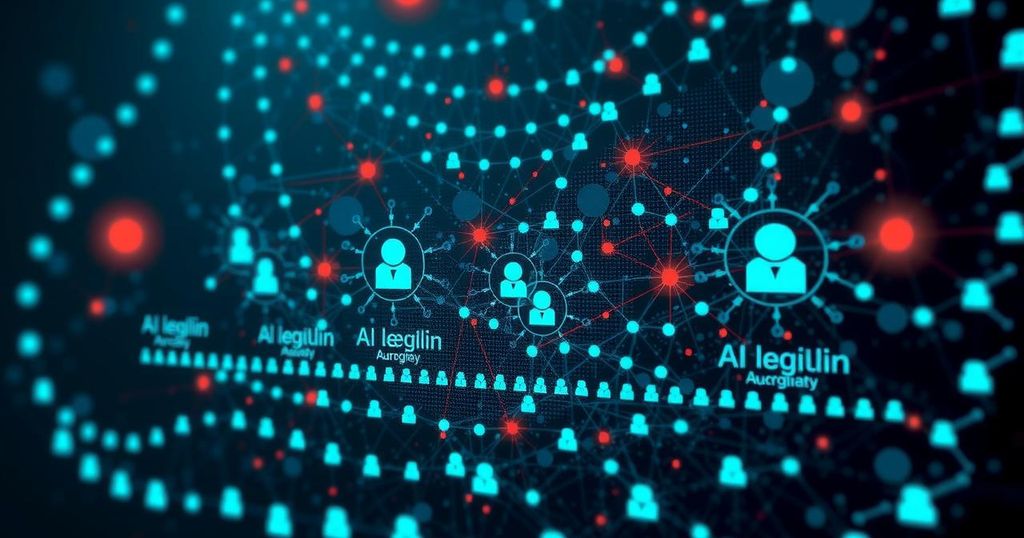Senate Unveils TRAIN Act to Promote Transparency in AI Copyright Use
Senator Peter Welch introduced the TRAIN Act to promote transparency in AI’s use of copyrighted works. It provides copyright holders access to training records, enabling verification of their works’ use in generative AI without consent. The bill, supported by various music industry leaders, aims to protect artists’ rights and allow for fair compensation in the evolving landscape of AI technology.
In a bold move to protect the rights of artists in the era of artificial intelligence, Senator Peter Welch from Vermont has unveiled the Transparency and Responsibility for Artificial Intelligence Networks (TRAIN) Act. This piece of legislation aims to unravel the ‘black box’ that surrounds the use of copyrighted works in training generative AI models. It proposes that copyright holders gain access to training records, empowering them to confirm if their creations have been utilized without their consent. If passed, this initiative echoes the steps taken against internet piracy, ensuring that creators receive appropriate compensation for their contributions.
Welch made it clear: “This is simple: if your work is used to train A.I., there should be a way for you, the copyright holder, to determine that it’s been used by a training model, and you should get compensated if it was.” The growing trepidation within the creative community reflects the broader concern about AI startups misusing copyrighted materials without transparency in their operations.
The TRAIN Act emerges in response to escalating calls from industry advocates who demand accountability in what is described as a shadowy domain of AI development. While record labels like Sony Music and Warner Music actively caution AI companies against leveraging their copyrighted content, the TRAIN Act seeks legal clarity, promising a pathway for creators to safeguard their work. Lauded by many within the music sector, Welch’s legislation is perceived as a critical tool in the ongoing struggle for artists’ rights.
Amid various initiatives promoting safety and transparency in tech, Welch has been a steady hurricane force for change. The bill enjoys enthusiastic backing from creative organizations including the RIAA and ASCAP, highlighting a united front championing the cause of creators’ rights. Industry leaders, from RIAA Chairman Mitch Glazier to SoundExchange CEO Michael Huppe, have voiced their support, indicating that the TRAIN Act could redefine the balance between innovation and respect for artistic contributions.
As voices of artists converge on Capitol Hill, the TRAIN Act is seen as a pact of hope amid anxieties over AI encroachment on artistic integrity. It offers a handshake between technological advancement and the safeguarding of creators against unauthorized exploitation, heralding a future where creativity can flourish without fear of being swallowed by unseen algorithms. The demand for transparency has never been more essential; the TRAIN Act may be the solution needed to illuminate the shadows that threaten to obscure artistic rights.
The rapid advancement of artificial intelligence has sparked debates about the ethical implications of AI training practices, especially regarding copyrighted material. As generative AI systems become increasingly sophisticated, they often ingest vast amounts of data, including works created by musicians and artists. However, many creators have voiced concerns over the lack of transparency in how these models use their works, sometimes without permission or compensation. This has led to a growing call for legislation that ensures AI companies disclose their training processes and respect the rights of copyright holders, culminating in the introduction of the TRAIN Act.
The TRAIN Act represents a significant step toward ensuring that artists and creators can reclaim power over their intellectual property in a landscape increasingly dominated by artificial intelligence. With the promise of transparency and accountability, this legislation not only aims to protect artists from unauthorized use of their works but also seeks to empower them with the ability to understand and oversee how their creations are utilized. As the industry rallies behind this proposed law, it heralds a necessary evolution in the relationship between creativity and technology, pushing for a future where both can coexist harmoniously.
Original Source: www.billboard.com




Post Comment